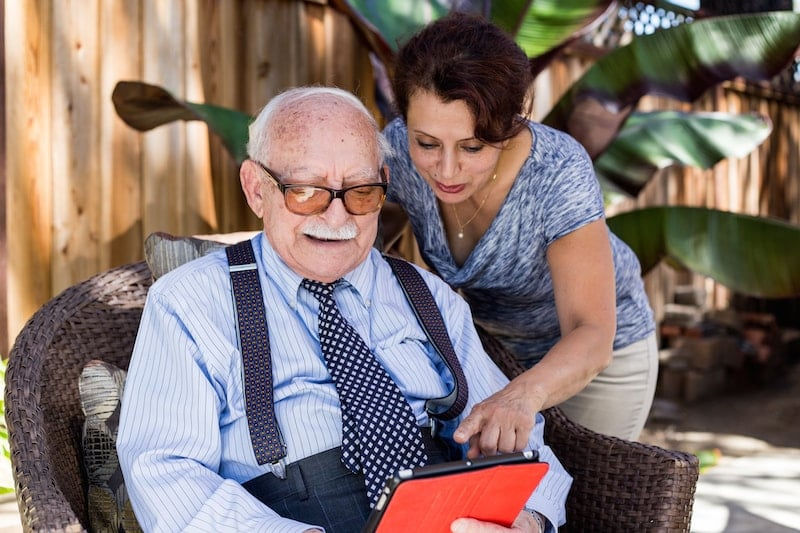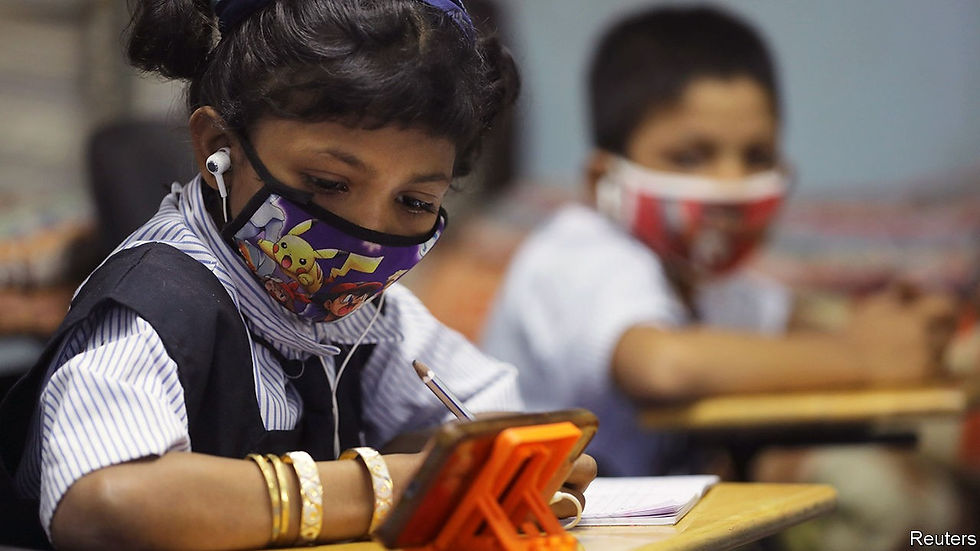Assistive technology comes of age in the time of COVID
- leeforddean
- Dec 18, 2020
- 4 min read
As this year comes to a close, for many it is a time to reflect and for others, it is a time to rejoice. Putting it lightly the year has been a year of change, adaptation, and support when possible. Since the COVID-19 pandemic begun towards the end of 2019 technology has played an integral part of our day to day lives. From digital events to the increase in usage of video calls software’s such as Microsoft Teams, Zoom and Skype to the preference and further success of e-commerce businesses, technology has come of age more so now than ever.
Many companies who specialise in assistive technology and devices in the rehabilitation industry during 2020 have sent their employees home to work whenever possible following government guidelines. This has ensured the safety and enabled people during these uncertain times to work safely particularly if they belong to a high-risk group due to their disability.
What is Assistive Technology?
Assistive is defined as specifically designed or intended to assist a person usually disabled. In the context of Assistive technology, it is known to be adaptive, rehabilitating, and assistive devices for people who have disabilities.
People who have disabilities often struggle to perform activities of daily living without a form of assistance whether person or technology. These can include eating, bathing, grooming, and dressing. Assistive technology can ameliorate disabilities effects to an extent where said activities can be performed. According to the World Health Organisations, Assistive technology can have a tremendous positive impact on the health and well-being of a person:
- Proper use of hearing aids can have aid children in improving their language skills
- Assistive technology can assist the elderly with living at home preventing the need for long-term care
- Assistive technology improves morale, self-sufficiency, and independence for users

Assistive Technology amidst Covid-19 - Crisis vs Creativity
The Assistive technology industry like so many others felt the ramifications of the coronavirus with many companies temporarily shutting down production and executing of their businesses. Whilst some companies sadly folded under these circumstances, others such as EXTRA Wheelchairs adapted to the changing climate and learnt to live with the pandemic. “It was a very difficult situation for us and many others,” says Demirhan Serefhan, the managing director of the company. “We must carry on with our lives, we must survive to continue to work.”

Working from home as mentioned earlier has become the new normal and has prompted a digital change in culture and the way we navigate the world. Documents, communications, and requests are exclusively produced through digital platforms. More than ever virtual communication is key, meetings are hosted online whilst workplaces continue to be unoccupied. Companies like Sunrise Medical, BamBuk or Tomcat UK cancelled in-person workshops and postponed consultations yet strived to provide as best as a service possible through virtual alternatives. “In a way, the pandemic has acted as a catalyst for change and has given a big push to modernisation,” says Dr Danner in an interview with Rehacare discussing the role digitalisation is playing currently and in the foreseeable future.
Whilst many continue to adopt new technological methods of navigating the assistive industry others are directly tackling the issues day to day living to provide the public. AMF-Bruns Sani-Station is a brand-new invention and answers to sanitation challenges the public transportation industry face. An intelligent dispenser for hand sanitisers which is pedal-operated via your feet. It also supports an infrared thermometer which can be attached to the machine providing free temperature measurements via their wrist or forehead.

The coronavirus pandemic bolstered demand for hygiene and protective equipment. Companies such as Ottobock SE hastily expanded their product portfolio to not only support the high demand and prevent infections but additionally find ways to contain the spread of coronavirus. Products such as their air purifiers are attempts to contain the spread and keep communal areas such as workplaces clean. Other product expansions include automatic/manual door openers, respirator masks, visors, and disinfectant products.

Assistive technology has particularly aided the education sector solving problems disabilities such as dyslexia pose to students. E-readers such as the Kindle are amazing examples due to their extensive customisable options – from page colour to font sizes and type. These options make reading accessible to someone with dyslexia or visual impairment. Livescribe Pen’s record what you write on a unique piece of paper which can be uploaded later into an online software which converts your handwritten notes into typewritten text. The pen additionally records the audio from lessons and lectures to be referred to. Both products, amongst a list of many offer, additional support for students who may be unable to attend a school or need additional support whilst schools suffer from constraints of the pandemic such as teaching assistant shortages.

As we make sense of the new normal, we must appreciate the work and lengths some companies are willing to go to for their consumers. Every industry has been affected negatively by the coronavirus and whilst the future is not clear, presenting assistive technology face these challenges head-on. Whilst some companies are struggling to adapt to the changing conditions albeit through choice or not, it is more than ever appropriate to appreciate the valuable contributions technology is having on our day to day lives.










Comments